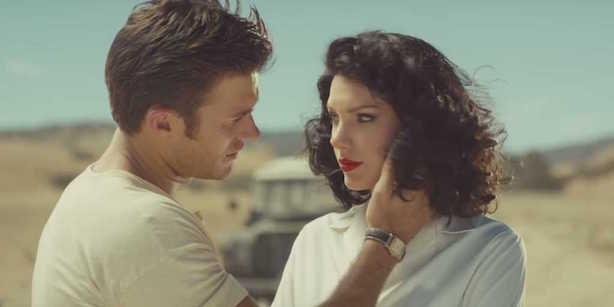 Music
Music
Taylor Swift accused of 'whitewashing' with new music video
by Jesse Locke
September 3, 2015
Director Joseph Kahn has issued a response to claims of racism with the "Wildest Dreams" video.
For her latest music video, Taylor Swift flew to Botswana and South Africa to depict the unrequited onset romance of two actors in a 1950s film. In the metacinema of “Wildest Dreams”, there are sparks on screen but once the star-crossed pair are back behind the scenes they struggle to connect.
Unfortunately, countless critics have made the all-too obvious observation about the video’s ‘whitewashed’ cast. As writer Nico Lang from The Daily Dot put it, “For a clip that’s set in Africa – it’s about as white as a Sunday morning farmer’s market.”
Now, director Joseph Kahn (who previously worked with Swift on her videos for “Bad Blood” and “Blank Space”) has issued a statement in defence of his casting choices. “We collectively decided it would have been historically inaccurate to load the crew with more black actors as the video would have been accused of rewriting history. This video is set in the past by a crew set in the present.” Kahn says the video includes black actors (though they’re only seen from a distance), was produced by a black woman, and edited by a black man.
Is this the music video equivalent of the “I Have Black Friends” defence? In the words of comedian Sean Lock: “I’m not a murderer; some of my best friends are alive.” The video may be historically accurate with Hollywood film productions of the 1950s, but it also perpetuates or possibly even glorifies colonialism, both onscreen and off. We’ll give Nico Lang the last word: “Swift has recently made her name on empowering young women, but she needs to rethink her definition of what empowerment means — and who it leaves out.”
Tags: Music, News, Taylor Swift, wildest dreams





